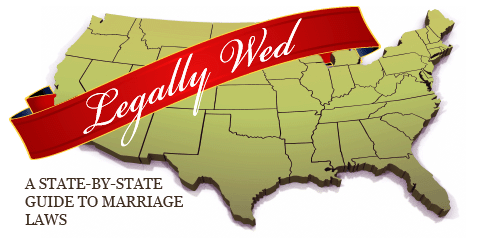
By Katherine Dean
In a country that claims to guarantee protection from discrimination to all of its citizens, it seems contradictory that a question of civil rights could ever be left to a popular vote. But that is exactly what has happened in states across the nation. This past November, voters on opposite sides of the country headed to the polls to decide the fate of marriage and spousal rights for same-sex couples. Question 1 gave Mainers the right to decide whether or not to ban gay marriage, while Washington state voters were faced with Referendum 71, a measure that, if approved, would convey broad domestic partnership rights to same-sex couples.
In May, both houses of Maine’s legislature passed a bill to end marriage discrimination and allow same-sex marriage. But groups such as Stand for Marriage Maine, determined to keep exclusionary laws in place, petitioned for a people’s veto of the bill and got Question 1 on the November ballot. Stand for Marriage Maine then proceeded to run a fire-and-brimstone campaign, fueled by propaganda claiming that an approval of gay marriage would hurt “traditional” families and force public school teachers to explain gay sex to children as early as first grade. Sadly, their scare tactics worked as Mainers approved Question 1.
Just as disturbing as special interest groups pushing to deny same-sex couples equal rights under the law is our federal government’s continued support of inequality through the 1996 Defense of Marriage Act (DOMA), which defines marriage as between one man and one woman. DOMA further provides that individual states are not obligated to recognize legal marriages that took place in another state or jurisdiction. The act denies legally married same-sex couples federal benefits and protections such as Social Security survivors’ benefits and family medical leave.
Despite setbacks in Maine, hope for marriage equality does appear on the horizon. In Washington, voters approved Referendum 71 and expanded the rights of same-sex couples to include all of the rights of married, heterosexual couples. Furthermore, new legislation has been introduced in Congress that would repeal DOMA and restore the rights of legally married same-sex couples. The Respect for Marriage Act (H.R. 3567) states that “an individual shall be considered married if that individual’s marriage is valid in the State where the marriage was entered into” for any federal law in which marital status is a factor.
Anti-marriage equality activists will likely continue to push their agenda by pursuing Prop 8-style ballot measures, especially in states that have been making progress toward marriage equality. They’ll probably use the scare tactics and fear-mongering that proved successful in Maine to further their discriminatory cause. The gay community and everyone who believes that the right to marry should be taken as seriously as our freedoms of speech and religion must fight back, pushing for equality at both the state and federal level. Equally Wed is committed to fighting for marriage equality and will continue to bring our readers legislative updates.
STATE-BY-STATE BREAKDOWN
If you’ve had trouble keeping up with the ever-changing and contradictory state laws surrounding same-sex marriage, you’re not alone. Take the state of California, which certainly wins the prize for most convoluted laws on the books. In November 2008, voters in this otherwise progressive state approved Proposition 8, a constitutional amendment which prohibits same-sex couples from marrying. The California Supreme Court, which previously ruled in favor of marriage equality in a May 2008 decision, upheld the validity of Prop 8 just one year later. Thankfully, the court held that the 18,000 same-sex marriages that took place between June 17 and November 4, 2008 are still recognized as legal marriages.
Further complicating matters are California’s laws surrounding recognition of legal same-sex marriages that took place in other jurisdictions. The Marriage Recognition and Family Protection Act (signed into law on October 12, 2009) recognizes legal same-sex marriages entered into on or before November 4, 2008 as marriages, but recognizes legal same-sex marriages taking place after that date as domestic partnerships. In other words, California defines marriage using an arbitrary date on the calendar.
It cannot be overstated that no matter how your jurisdiction legally defines marriage, there are no laws preventing gay couples from having a wedding ceremony. Same-sex couples can and should have the wedding of their dreams. But just in case you’re thinking of hopping a plane to a more tolerant state, Equally Wed explains marriage laws with our handy state-by-state breakdown of what’s recognized where.
SMALL STATES WITH BIG IDEAS.
New Hampshire. On June 3, 2009, Governor John Lynch signed legislation that recognizes marriage for same-sex couples. The bill took effect on January 1, 2010. Additionally, the bill is retroactive, which means that people who entered into a civil union under the old law can have their civil unions recognized as marriages if they apply by January 1, 2011.
Massachusetts, Connecticut, Iowa and Vermont. Same-sex couples in these states are afforded all of the rights and benefits of different-sex marriage. These states issue marriage licenses for same-sex couples and honor the marriages of same-sex couples from other jurisdictions.
Washington, D.C. Though not a state, this district—and our nation’s capital—began recognizing same-sex marriage on March 3, 2010 (the law was introduced in October and passed in December, but the Congressional review period kept licenses from being issued until it expired on March 2).
NEEDS IMPROVEMENT.
California, Nevada, New Jersey, Oregon, Washington and the District of Columbia: Through either domestic partnerships (CA, NV, OR, WA, DC) or civil unions (NJ), these states recognize same-sex relationships and grant same-sex couples the same state-level rights as opposite-sex couples. These states do not issue marriage licenses, nor (with the exception of the District of Columbia) do these states recognize legal marriages from other jurisdictions.
Colorado, Hawaii, Maine, Maryland and Wisconsin: Laws in these states provide limited spousal rights to same-sex couples through some form of relationship recognition (designated beneficiaries, reciprocal beneficiaries or domestic partnerships).
New York: Recognizes same-sex marriages for couples who entered into a legal marriage in another jurisdiction. The Empire State does not provide recognition of same-sex relationships (except those that were entered into in another jurisdiction), nor is there a statewide registry for same-sex couples. Domestic partners are provided with very limited rights such as visiting one another in the hospital and making funeral arrangements.
INEQUALITY IS THE NAME OF THE GAME.
Remaining States: All remaining states continue to actively promote inequality either through statute or a constitutional provision (states that really fear gay marriage have both) banning same-sex marriage. They do not recognize same-sex relationships. Only New Mexico and Rhode Island lack explicit bans on same-sex marriage. New Mexico offers domestic partnership (though not necessarily same-sex) benefits to state employees, while Rhode Island grants limited spousal rights to same-sex couples without officially recognizing their relationships.
You can help support marriage equality for all by signing the Human Rights Campaign’s Million for Marriage Petition.






























